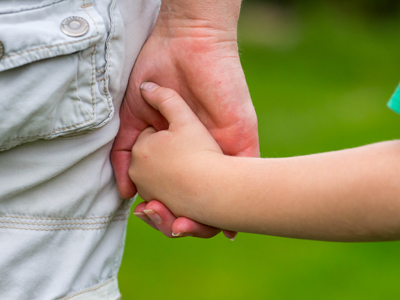
Two and a half million children live in families that are being forced to cut back on food and heating because of child benefit cuts, research from End Child Poverty has found.
‘Short Changed: The true cost of cuts to children’s benefits’, published today, found a failure to increase child benefit and child tax credits in line with living costs over the past three years has left one in five affected families in England struggling to provide the basics for their children.
Sam Royston, vice chair of End Child Poverty, said these issues have a knock-on effect for children’s social care services because of the added pressure they put on families and the risks they can cause to children’s health.
Social care interventions
One in five families cutting back on food and heating is a “real concern” when trying to ensure children aren’t neglected and receive the support they need, Royston said.
“We know there can be social care interventions in extreme cases where it is considered that families cannot get by or provide the basics that their children need,” Royston said.
“Clearly, if some of these cuts are resulting in children living in homes that are too cold, at risk of making them ill, or if children are living in homes where they are not able to get decent food and are going hungry, then those will be issues of concern to social care services.”
‘Triple lock’ on child benefits
He added: “If families are being put under extreme financial pressure, we know it leads to arguments, we know it leads to stress, and all of those issues can make a home an unpleasant environment for a child, and result in real issues for the children in that household.”
End Child Poverty called for a ‘triple lock’ on child benefits to see them rise “in line with prices, earnings, or by 2.5%, or whichever is the highest”. By 2020 children’s benefits should be increased by a minimum 2.5% a year, like state pensions, the group argued.
This would mean 350,000 less children would be living in poverty by 2020 than would be under the government’s current plans, according to the report.
False economy
The pressure on services that may arise following cuts is a false economy, Royston warned.
“Analysis has suggested that child poverty costs the UK £29bn a year through costs to social services, unemployment benefits when children become adults and health services…
“Some investment in providing the support that children and families need for a decent standard of living can really help offset some of those potential risks and potential costs,” Royston said.


 Bournemouth, Christchurch and Poole
Bournemouth, Christchurch and Poole  Hampshire County Council
Hampshire County Council  Lincolnshire County Council
Lincolnshire County Council  Norfolk County Council
Norfolk County Council  Northamptonshire Children’s Trust
Northamptonshire Children’s Trust  South Gloucestershire Council
South Gloucestershire Council  Wiltshire Council
Wiltshire Council  Wokingham Borough Council
Wokingham Borough Council  Children and young people with SEND are ‘valued and prioritised’ in Wiltshire, find inspectors
Children and young people with SEND are ‘valued and prioritised’ in Wiltshire, find inspectors  How specialist refugee teams benefit young people and social workers
How specialist refugee teams benefit young people and social workers  Podcast: returning to social work after becoming a first-time parent
Podcast: returning to social work after becoming a first-time parent  Podcast: would you work for an inadequate-rated service?
Podcast: would you work for an inadequate-rated service?  Family help: one local authority’s experience of the model
Family help: one local authority’s experience of the model  Workforce Insights – showcasing a selection of the sector’s top recruiters
Workforce Insights – showcasing a selection of the sector’s top recruiters 

 Facebook
Facebook X
X LinkedIn
LinkedIn Instagram
Instagram
Comments are closed.